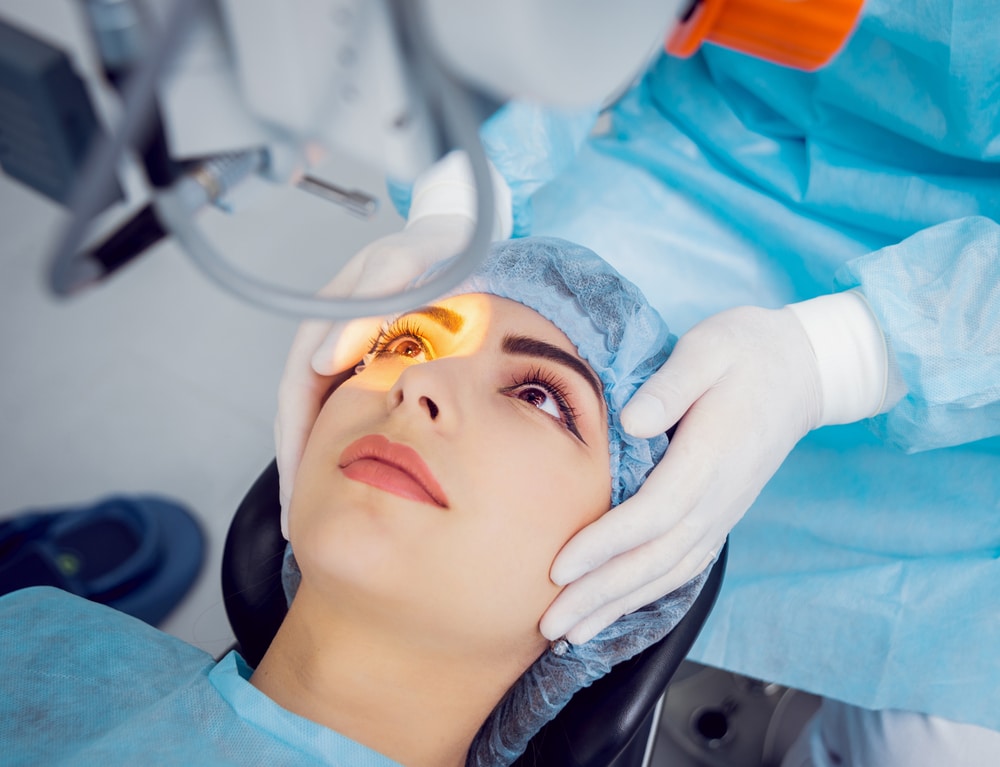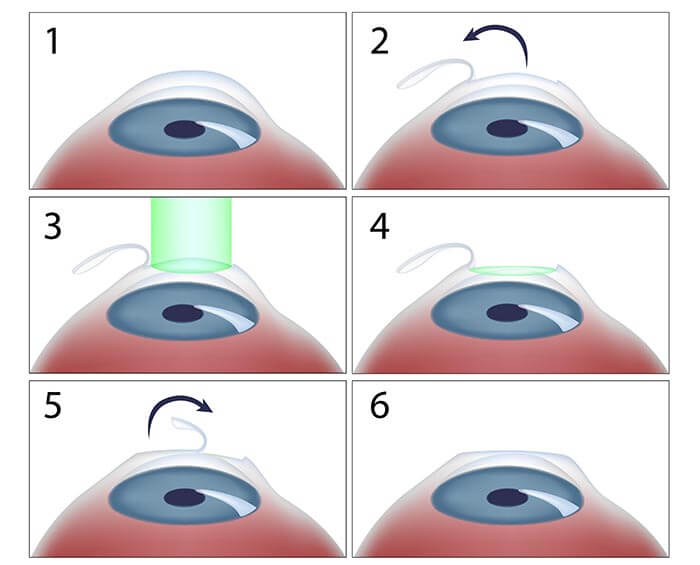An In-depth Take A Look At the Different Eye Surgical Procedure Procedures Supplied by Experienced Optometrist
In the world of ophthalmology, the landscape of eye surgery treatments used by competent eye doctors is as varied as it is advanced. From the extensively acknowledged LASIK eye surgical procedure to the much less familiar refractive lens exchange, each procedure holds the assurance of vision modification and enhancement.

LASIK Eye Surgical Treatment
The precision of LASIK eye surgical treatment uses people a transformative option for vision improvement given by skilled optometrist. LASIK, which stands for Laser-Assisted In Situ Keratomileusis, is a popular refractive surgery that improves the cornea to resolve common vision problems such as astigmatism, farsightedness, and nearsightedness. This outpatient treatment uses an extremely specialized laser to precisely remove tiny quantities of cells from the cornea, enabling improved concentrating power and clearer vision without the need for glasses or contact lenses.
Throughout the LASIK procedure, the eye cosmetic surgeon creates a thin flap on the cornea making use of a microkeratome or a femtosecond laser. This flap is then folded back to access the underlying corneal cells, which is improved using an excimer laser based upon the individual's distinct prescription. The flap is then repositioned, where it sticks back right into location without the requirement for sutures, advertising quick recovery and very little discomfort post-surgery. With its high success price and rapid recuperation time, LASIK eye surgical procedure has come to be a trusted method for attaining long-term vision enhancement.
PRK Treatment
A highly reliable alternative to LASIK eye surgical treatment is the PRK procedure, known for its successful end results in vision correction. PRK, or Photorefractive Keratectomy, is a type of refractive surgical procedure that improves the cornea to fix refractive errors such as nearsightedness, farsightedness, and astigmatism.
Throughout the PRK procedure, the external layer of the cornea, called the epithelium, is eliminated to access the underlying corneal cells. Unlike LASIK, which creates a flap in the cornea, PRK directly improves the surface area of the cornea. Tallahassee Ophthalmologist. This makes PRK a suitable choice for individuals with slim corneas or various other corneal abnormalities that may prevent them from going through LASIK
The epithelium regrows naturally over a few days after the procedure. While the recovery time for PRK is typically longer compared to LASIK, numerous clients achieve excellent aesthetic end results with this treatment.
Cataract Surgical Procedure
Cataract surgical procedure is a typical treatment carried out to get rid of the over cast lens of the eye and change it with a clear synthetic lens. This surgery is generally done on an outpatient basis and is highly effective in bring back vision. The cloudy lens, which is called a cataract, creates slowly and can cause obscured vision, problem seeing during the night, and sensitivity to light.
During the cataract surgical treatment treatment, the ophthalmologist makes a small laceration in the eye and utilizes ultrasound technology to separate the gloomy lens. The fragmented lens is then delicately suctioned out, and a synthetic intraocular lens (IOL) is put in its location. This IOL helps to concentrate light onto the retina, enhancing vision.
Patients going through cataract surgery are generally awake during the treatment, which typically lasts around 15-30 mins. Recovery time is reasonably quick, with several individuals seeing improved vision within a couple of days. It is important to adhere to post-operative care guidelines offered by the eye surgeon to guarantee ideal healing and vision results.
Refractive Lens Exchange
Refractive Lens Exchange, additionally referred to as lens replacement surgical treatment, is a procedure that includes eliminating the eye's natural lens and changing it with a synthetic lens to remedy vision issues. This surgical strategy is mostly used to treat presbyopia, extreme hyperopia (farsightedness), and various other refractive mistakes that can not be appropriately attended to with conventional approaches like glasses or contact lenses. During the treatment, the natural lens is normally replaced with a premium intraocular lens (IOL) that can remedy refractive errors and, sometimes, even protect against the development of cataracts in the future. Refractive Lens Exchange is considered a safe and reliable option for individuals seeking have a peek here to minimize their dependancy on restorative eyewear and enhance their general high quality of vision. By seeking advice from a competent optometrist, people can determine if they appropriate prospects for this kind of surgery and talk about the prospective advantages and threats related to the treatment.
Corneal Transplant
Having actually dealt with refractive mistakes through treatments like lens substitute surgical treatment, competent ophthalmologist additionally offer corneal transplants as an option for specific eye conditions. A corneal transplant, likewise referred to as corneal grafting, entails changing a harmed or infected cornea with a healthy and balanced benefactor cornea to why not try this out boost vision. This treatment is commonly recommended for individuals with problems such as keratoconus, corneal scarring, corneal ulcers, or corneal thinning.
During a corneal transplant, the ophthalmic surgeon eliminates the main part of the damaged cornea and changes it with a benefactor cornea that is very carefully matched for dimension and shape. There are different kinds of corneal transplants, consisting of permeating keratoplasty, where the whole thickness of the cornea is changed, and partial thickness transplants like Descemet's removing automated endothelial keratoplasty (DSAEK) or Descemet's membrane layer endothelial keratoplasty (DMEK), which change only the internal layers of the cornea.

Final Thought

In the world of ophthalmology, the landscape of eye surgical procedure treatments provided by knowledgeable eye doctors is as description varied as it is progressed.The precision of LASIK eye surgical procedure uses people a transformative solution for vision adjustment given by competent eye medical professionals.Refractive Lens Exchange, likewise understood as lens replacement surgical procedure, is a treatment that entails removing the eye's all-natural lens and changing it with a fabricated lens to fix vision issues.Having resolved refractive errors via treatments like lens substitute surgical procedure, skilled eye doctors additionally supply corneal transplants as an option for particular eye conditions.In verdict, competent eye medical professionals provide a selection of eye surgery procedures consisting of LASIK, PRK, cataract surgery, refractive lens exchange, and corneal transplant.